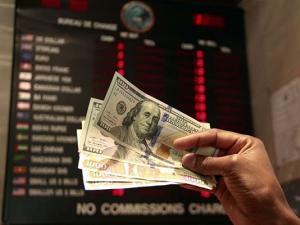
EAC in crackdown on illegal forex trading
East African governments have stepped up the war against and speculative foreign currency trading.
The latest effort has seen the region’s central banks and capital markets regulators tighten forex trading regulations to weed out fraudsters from the lucrative business.
It is argued that illegal forex trading stands to trigger inflation in the region and weaken local currencies, which would make imports expensive and further worsen budget deficits for regional economies.
For instance, in Tanzania, the local currency depreciated by 0.3 per cent between September and October this year and 2.2 per cent on average in the past 10 months, according to data compiled by global advisory firm StratLink.
The Tanzanian shilling closed the month of November at 2,291.7 units against the US dollar, down from 2,281.5 units against the greenback at the beginning of the same month.
Bank of Tanzania carried out a six-month investigation into the illegal business, which revealed rampant fraud the forex market business, with several traders involved in money laundering.
As a result, the banking regulator launched a crackdown on this illegal business by suspending the licensing of new forex bureaus, arresting some key suspects and barring suspect commercial banks from the interbank forex markets.
“All applications have been suspended and new applications won’t be accepted pending the introduction of new rules and regulations,” said BoT Governor Florens Luoga.
Tanzania used the military to seal off suspicious forex bureaus as central bank officials raided the outlets.
In Rwanda, three public agencies have joined hands to combat the growing black market forex operations in Kigali.
The team comprises the National Bank of Rwanda, the police and the Local Government Ministry.
In November, Rwandan security officers arrested five unlicensed forex traders.
The Rwanda National Police has intensified operations against illegal foreign exchange dealers including non-licensed forex bureaus.
In Rwanda, the law provides that any person who sells or exchanges the national or foreign currency illegally shall be liable to a term of imprisonment of six months to two years and a fine from Rwf200,000 ($224) to Rwf3 million ($3,358).
In Uganda, the police have been hunting down illegal forex dealers since 2015, and several suspects have been arrested and detained, according to the Bank of Uganda.
Kenya has cautioned investors to be alert of the illegal forex business after the Capital Markets Authority discovered that several dealers were operating without licences.
“The Authority will take appropriate enforcement action against any persons or entities illegally conducting online foreign exchange trade or collecting client funds in contravention of these regulatory provisions,” said CMA chief executive Paul Muthaura.
Kenya has set a fine of up to Ksh5 million ($50,000) financial and or imprisonment for a period not exceeding two years for individuals masquerading as online forex brokers, according to Capital Markets (Online Foreign Exchange Trading) Regulations, 2017 which came into effect last year.
